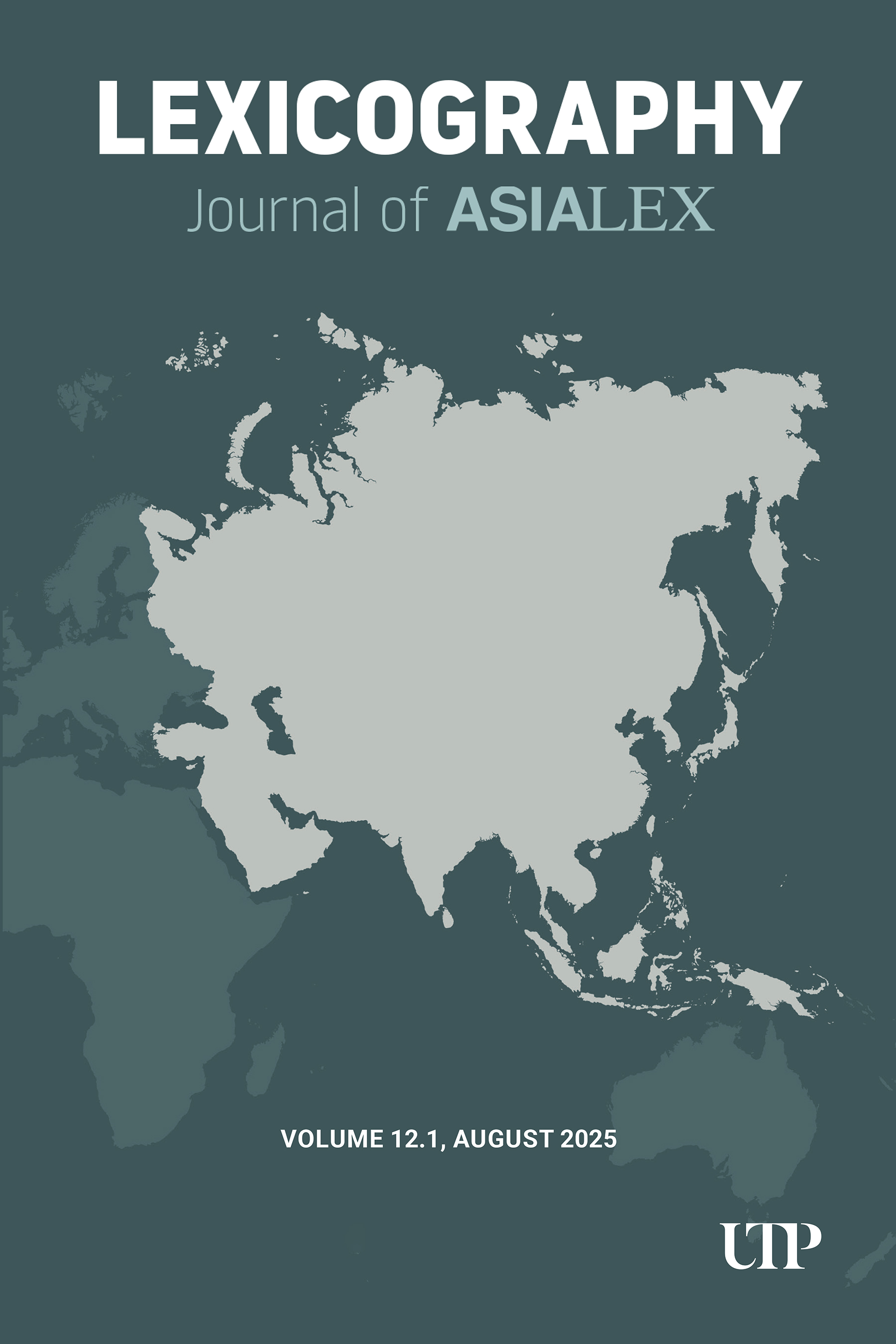
New Perspectives in Computational Lexicography: From Data to Dictionaries.
This issue focuses exclusively on Asian computational lexicography. All articles will be published in English. For details, please see the journal page: https://utppublishing.com/journal/LEXI
Call for Papers — Special Issue (December 2026)
As guest editors of the Lexicography (Journal of Asialex), this special issue aims to showcase rigorous and reproducible interdisciplinary approaches that combine lexicography and computational methods. We focus on pathways that transform large-scale linguistic data into usable lexicographic resources. We particularly welcome contributions exploring new computational technologies applied to lexicography, as well as the creation of digital dictionaries supported by these technologies (e.g., NLP, AI, databases, LLM methods, knowledge graphs, and ontological models such as OntoLex-Lemon). The goal is to build reliable, data-driven lexicographic resources—from corpus acquisition and preprocessing to sense modeling, micro/macrostructural design, evaluation, and deployment. Keywords : Lxicography, computational, Asian language Scope (non-exhaustive) Corpus-driven dictionary building for Asian languages and scripts (e.g., Chinese, Japanese, Korean, Vietnamese, Indic scripts, Thai, etc.). Data → Dictionary pipelines: ingestion, normalization, tokenization for multi-script and low-resource settings. Sense modelling & representation (polysemy, multiword expressions, phraseology) with OntoLex-Lemon, SKOS, and Linked Open Data. Knowledge graphs and alignments (e.g., Wikidata/DBpedia) for lexical/encyclopedic integration. LLMs in lexicography: definition generation, example sentence creation, error analysis, controllability, evaluation. Annotation & evaluation: guidelines, inter-annotator agreement, automatic metrics, human evaluation protocols. Cross-lingual/contrastive lexicography (including dialectal variation and transliteration issues). Tools & platforms: APIs, interfaces, and workflows for dictionary authoring, validation, and publication. Ethics & governance: bias, fairness, licensing, and sustainability of data and models. Applications: educational lexicography, domain-specific dictionaries, interactive/embedded dictionaries.
Expression of interest
Please send a title and a 150–200-word abstract (optionally: 3–5 keywords and a corresponding author) by 30 September 2025 to help us plan the editorial process.
Important dates
Opening of the call for papers: September 15, 2025
Invitations sent to experts: September 15, 2025
Submission of abstracts by authors: September 30, 2025
Submission of the first version by authors: April 30, 2026
Reviews returned: May 30, 2026
Submission of the revised version by authors: June 30, 2026
Final versions due: August 10, 2026
Guest Editors
CHEN Lian 陈恋
LLL, University of Orleans & CRLAO-CNRS-INALCO
lian.chen@univ-orleans.fr
GENG Yundong 耿云冬
School of Foreign Languages, Huazhong Agricultural University, China
benedict_geng@mail.hzau.edu.cn
Editors-in-Chief
Hai Xu Guangdong University of Foreign Studies, China xuhai1101@gdufs.edu.cn Vincent Ooi National University of Singapore, Singapore vinceooi@nus.edu.sg
